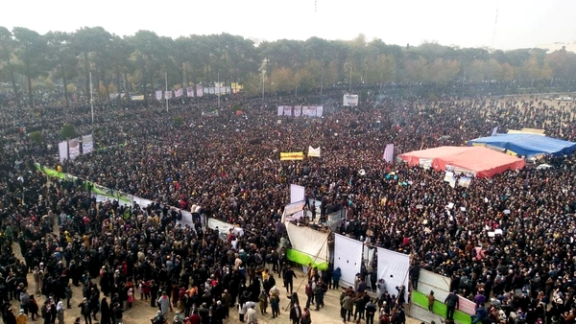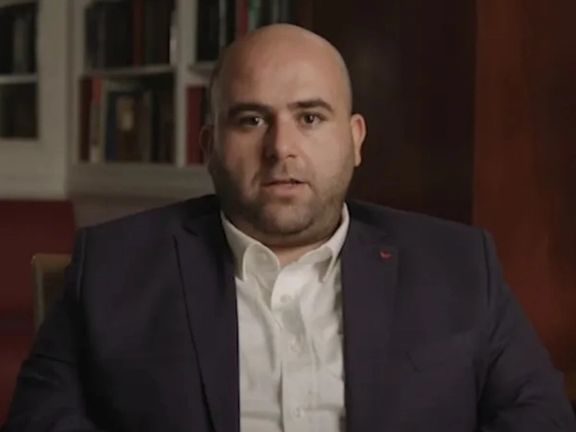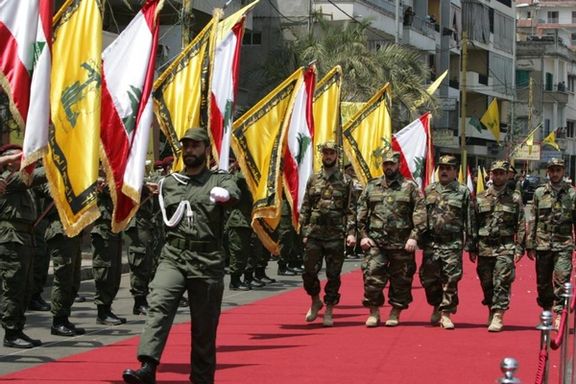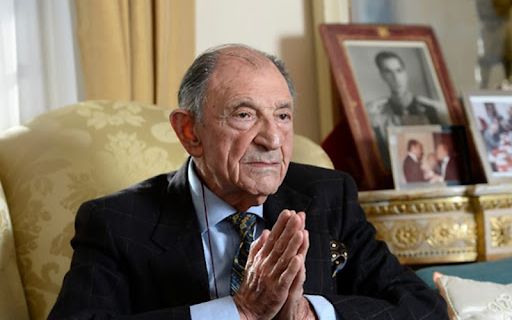Internet Disrupted In Esfahan After Large Protest As Anti-Riot Police Appear

As night fell in Esfahan where large crowds protested Friday, Internet connection in the city center were cut and riot police trucks appeared on the streets.

As night fell in Esfahan where large crowds protested Friday, Internet connection in the city center were cut and riot police trucks appeared on the streets.
Thousands of Esfahan residents Friday gathered on the dry bed of Zayandeh Roud river in the city center to support farmers who have been protesting for more than ten days demanding their water rights.
The crowd chanted slogans demanding their river flow again and booed when someone with loudspeaker mentioned Supreme Leader Ali Khamenei’s name.
A video received by Iran International shows riot police special trucks driving down city streets, possibly to position forces where the protest took place Friday. Due to Internet disruption, it is not clear how many people have remained there, although farmers have been camping in the middle of the riverbed for days.
The government in Iran often cuts the Internet during protests so few images could be posted by citizens on social media. It is also a way to reduce the ability of people to communicate and congregate.
Surprisingly, state television showed the protests and government-controlled print media reported on the demonstration, portraying it as “non-political” and legitimate.

Telling the truth is a crime in Iran, says journalist Mohammad Mosaed, winner of the 2020 press freedom award of the US-based Committee to Protect Journalists (CPJ).
Mosaed received his award Thursday at a ceremony in New York City after one year's delay now that he is safely out of Iran and living in the US, which CPJ says has played a “powerful role…historically in supporting press freedom around the world.”
In a video-taped speech, Mosaed identified "just a few examples of the countless sufferings of Iranians” in missiles shooting down a Ukrainian passenger plane in 2020; the killing of hundreds of protesters in 2019; economic crisis and corruption; and Supreme Leader Ali Khamenei ruling against the import of US- and British-made vaccines.
"The crucial point about each of these catastrophes is that we were never properly made aware of their dimensions," Mosaed said. "Speaking the truth is dangerous in my country because the government fears not only the truth itself but also the audacity behind telling the truth and this has turned speaking the truth into a crime in my country."
Mosaed was unable to receive his award last year as he had fled to Turkey to seek asylum.He was detained by Turkish authorities in January and faced the possibility of extradition to Iran.
"At that time he was in danger and could not speak to us openly," Yeganeh Rezaian (Salehi), an Iranian journalist who has worked for Bloomberg and the Abu-Dhabi owned National newspaper. Rezaian was arrested along with her American-Iranian journalist husband Jason Rezaian in 2014 and spent months in Evin prison, Tehran.
"Being summoned to serve more than four years in prison for the crime of exposing financial corruption, Mohammad fled Iran for neighboring Turkey,” she told ICJ. “There he faced the prospect of being sent back. Thanks to CPJ and others, Mohammad is safe.”
In his speech Mosaed criticized the Iranian government for "increasingly cracking down on domestic and foreign journalists, by expelling, exiling, persecution of their families, and widespread propaganda."
Mosaed was arrested in 2019 after posts on Twitter about an internet shutdown. “Knock Even! Hello Free World!" he tweeted in English, adding that he had used 42 different proxies to find a way to post. "Millions of Iranians don't have the internet. Can you hear us?”
He was then released and subsequently detained after he had criticized the government over management of the Covid pandemic. In September 2020 Mosaed was sentenced by a Revolutionary Court to four years and nine months in prison on security and propaganda charges, and banned from journalism and using communications devices for two years.

Large protests to lack of water by farmers in the central Iranian city of Esfahan, backed by the city’s residents, continued Friday for the second week running.
Thousands of people gathered on the dry bed of the iconic Zayandeh Roud river and on the 400-year-old bridges linking the two parts of Esfahan to demand action by the government. Friday’s protest was one of the largest demonstrations in the city in recent years, coming on the anniversary of the November 2019 bloody protests, which carries the risk of unrest spreading to other cities.
Government-controlled media surprisingly published photos of the protests but tried to say that the event is not a "political protest", and reported that Vice-President Mohammad Mokhber will visit the city on Friday and deliver a speech.
Zayandeh Roud – which starts from the Zagros Mountains, whirls through Esfahan and disappears in wetlands east of the city – has been completely dry most of the year for two decades. Esfahani farmers who have been intermittently protesting since 2017, have camped in the city for nearly two weeks as their livelihood has been destroyed by the dry river.
Although a long-running drought has brought many regions in Iran and in the Middle East to a point of crisis, matters have gotten much worse in Iran where people blame government mismanagement, harmful dam building and politically motivated diversion of rivers have devastated agriculture and drinking water sources.
Iranians who also have to cope with a serious economic crisis and 50-percent inflation rate see government mismanagement as the main reason for all kinds of issues.
Protesters on Friday continued chanting slogans, as they have been doing all along. They chanted "Flowing Zayandeh Roud Is Our Indisputable Right," a play on the slogan "Nuclear Energy Is Our Indisputable Right," often chanted at state-sanctioned rallies. "Give Back Our Zayandeh Roud, Give Back Esfahan Its Breath.”
There has also been land subsidence in the city and at the city airport due to water scarcity. Photos posted to social media show cracks in the ground around the airport, and hollows and cracks in and around Esfahan’s historical buildings and monuments.
This has brought the issue more forcefully to Esfahan’s urban residents who have been upset over the dry river. Every time the authorities allow a little bit of water to flow into the river, people congregate along its banks and celebrate.
In June, water protests erupted in the oil-rich Khuzestan province that ended with the forceful intervention of police and the Revolutionary Guard. More than ten people were killed and hundreds detained.

A news website in Tehran says the Islamic Republic is eying a highway project that would link Tehran to Beirut, in a grandiose plan to reach the Mediterranean.
Fararu, a prominent pro-reform website Thursday published an article by Mohammad Mehdi Hatami, the website's economic correspondent, that Iran is thinking of using its influence in Iraq, Syria and Lebanon to build a highway to connect Tehran to the Mediterranean Sea via Iraq and Syria.
Iran has even given a name to the highway: The Resistance Highway. However, Fararu's economic correspondent argued that this is not a task to be accomplished easily as it can change the geopolitics of the region.
Fararu also noted that that Iran is now seriously thinking of building the highway as Iran and Saudi Arabia's rivalry over supremacy in the region is almost at its peak.
Iranian military commanders and hardline politicians have never concealed the Islamic Republic's interest in the Mediterranean region. Many of the pro-regime media and officials take it for granted in their rhetoric that Iran needs to have or already has a foothold in Syria's Mediterranean shores.
Iran is revealing the ambition at a time when US sanctions have ruined its economy, its influence in Iraq and Syria is debatable partly for the same reason and its influence in Lebanon is effectively challenged by Saudi Arabia.
Iranian website Khabar Online in September 2019 quoted IRGC news sourcesas saying that "Iran's access to long-range ballistic missiles with a range of 2,000 kilometers has left no safe place for US warships from the Arabian Sea to the Mediterranean." The website added that "Foreign players, particularly the United States have received Iran's message that the Mediterranean region is within reach of Iran's missiles."
In late October, Defa (Defense) Press, a news outlet linked to the Iranian military forces, quoted Major General Yahya Rahim Safavi, a former commander of the IRGC, who is currently Khamenei's top military adviser, as saying: "Iran's strategic depth is stretched from the Persian Gulf to the Mediterranean Sea."
Even a year before that, IRGC's acting commander in Lorestan province, General Habibollah Tavakoli saidthat Iran's Western borders are no longer next to Iraq, but they are located in the Mediterranean Sea where Tehran's enemies have been stopped.
All these claims about Iran's strategic depth are in defiance of sanctions and international isolation that have paralyzed and shrank Iran's economy, Fararu noted in an unusually candid tone for a publication operating under Iran’s strict state control. The website’s editor, Mohammad Hossein Khoshvaght is said to be a relative of Supreme Leader Ali Khamenei.
This comes while other regional players are also eying a new emerging situation in the region. Fararu says the emergence of the Taliban and the recent meeting between the United Arab Emirate Emirate's Foreign Minister and Syrian leader Bashar Assad are the signs of this emerging situation.
Iranian officials often complain that despite spending blood and treasure in Syria, the Islamic Republic is not benefitting economically from its presence there and Russians control the lion’s share of influence. There are speculations that the Syrian president Bashar al-Assad might try to reduce Iran’s presence.
Nevertheless, according to Fararu, the plans for building the highway are outlined by a think tank at the Imam Sadeq University in Tehran where most of the Raisi Administration's cabinet ministers come from. However, it is difficult to differentiate between practical ideas and wishful thinking, particularly because the same think tank has failed to solve any of Iran's problems.

The US announced criminal charges on Thursday against two Iranians accused of launching a cyber campaign to meddle in the 2020 US presidential election.
The US also sanctioned six Iranian officials for their roles in the alleged plot.
Seyyed Mohammad Hossein Musa Kazemi, 24, and Sajjad Kashian 27, are each facing charges that they obtained confidential US voting information from at least one state election website.
They are also accused of sending threatening emails to intimidate voters and sending a video that contained disinformation about purported election infrastructure vulnerabilities.
The indictment alleges they also gained access to a US company's computer network in a plot to disseminate false claims about the election, but their plot was foiled thanks to intervention by the FBI and the company, which the indictment did not identify by name.
Secreatry of State Antony Blinken said, "Designation of Iranian cyber actors represents the collective efforts of the US Treasury, State Department and the FBI. The US government took decisive action against those seeking to interfere with the sanctity of our elections."
“This indictment details how two Iran-based actors waged a targeted, coordinated campaign to erode confidence in the integrity of the electoral system and to sow discord among Americans,” said Assistant Attorney General Matthew G. Olsen.
Two weeks before the November election, top intelligence officials in then-President Donald Trump's administration alleged that both Russia and Iran were attempting to interfere in the election and had gained access to some US voter registration data.
Report by Reuters

Ardeshir Zahedi, former Iranian foreign minister, ambassador to Washington during the monarchy and son-in-law of the Shah passed away in exile on Thursday.
Zahedi who lived in Switzerland was 93 years old and was born into a powerful family in 1928 in Tehran. His father, Fazlollah Zahedi, was a general who served as prime minister and played an instrumental role during political upheaval in Iran in 1953 when he led a military coup that brought Mohammad Reza Shah Pahlavi back to power.
Zahedi who attended an American School in Beirut continued his education in Utah State University and graduated as an agricultural engineer. After returning to Iran, he became a senior official in the Point Four assistance program launched by US President Harry S. Truman in 1949.
Zahedi served as ambassador in Washington from 1960-1962 and again from 1973 until the 1979 revolution. He was foreign minister from 1966-1971.
In the final years of his life Zahedi adopted controversial positions, including his praise for Quds Force commander Qasem Soleimani who was killed by a US drone attack in Baghdad in January 2020, ordered by former president Donald Trump.